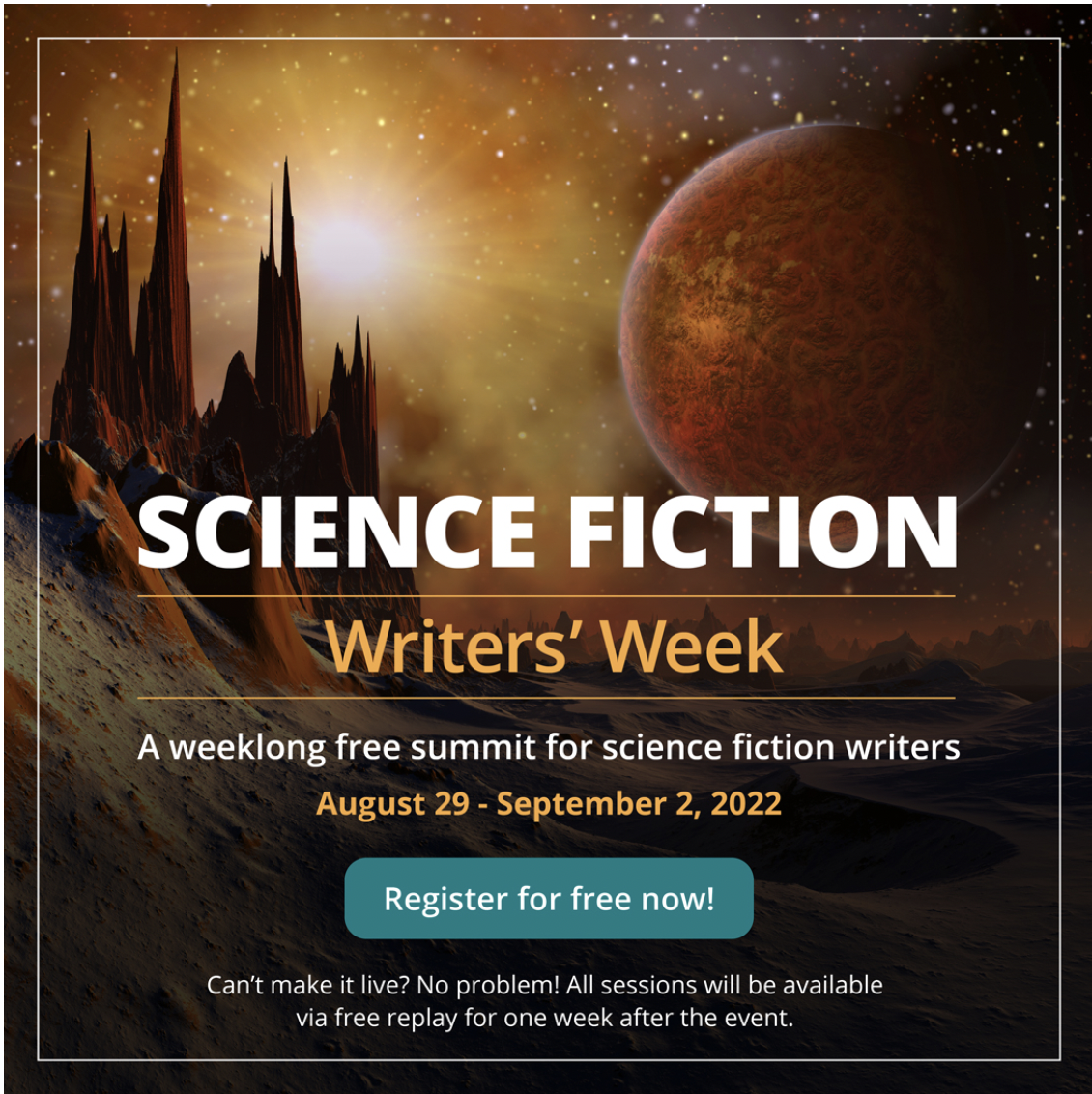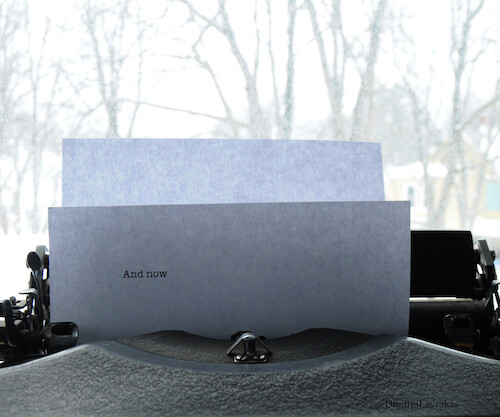
Hiya writers,
I was on a Zoom call the other day with a marketing team and I said something I’ve said a million times before: I don’t want to complicate this. I want it to be easy. I’m not interested in hustle. I’m interested in lying on the beach and reading a book.
What’s funny is that I really, really meant it. Perhaps for the first time.
This is the 77th issue of this newsletter. I’m not at all surprised and yet completely mystified that I’ve managed to not only start and sustain this newsletter but, as of this week, make it an income stream(!).
But it’s summer and I’m headed to Wales. And so, to practice what I preach, I’m taking a holiday to recharge and come back even stronger and wiser (okay, maybe just stronger) than before.
We’ll be on hiatus for the next two weeks.
I’ll return on Monday, August 29, with our next issue. Can’t wait to catch up with all of you then.
Enjoy the issue!
NEWS & VIEWS
Clueless in publishing
If you’ve been following the DOJ-PRH trial, you could be forgiven for thinking that the bosses of traditional publishing are either clueless, liars, or both. The trial has shed light on many things, mostly how broken the business truly is, and why authors need to, more than ever, understand what’s going on behind the scenes and how it impacts both the acquisitions and the sales of their books.
Here’s our summary of what’s happening. We highly recommend reading this entire thread by Publishers Weekly’s John Maher, who has been live tweeting the trial.
And here are some moments from the case as outlined by Vulture:
“Everything is random in publishing. Success is random. Best sellers are random. So that is why we are the Random House!” Such were the reported words of Penguin Random House chief executive officer Markus Dohle during his August 4 testimony in an antitrust trial that could determine the fate of the U.S. publishing industry.
—
[Stephen] King said that publishers’ purchase of books was less competitive than before, and described acquisitions as an “‘After you.’ ‘No, after you’” scenario. “You might as well say you are going to have a husband and wife bidding against each other for a house,” King said on the stand. “It’s a little bit ridiculous.” King, according to the Los Angeles Times, testified that independent publishers faced financial pressures from sprawling conglomerates. “The reason they’re being squeezed is because they don’t get the shelf space that they used to because the majors take a lot of that shelf space.”
—
The chief executive’s time on the stand also shed more light on how publishers view and categorize authors in a sort of class system. [Simon & Schuster CEO Jonathan Karp] reportedly said that the common publishing term “mid-list writer” — which, according to the Associated Press, refers to “a broad and intrepid corps of noncommercial authors, a kind of publishing middle class” — is used by publishers to avoid calling them “low-list” authors.
—
The Justice Department did try to undermine claims of the big five being imperiled by e-tailers. During [Penguin Random House chief executive officer Markus Dohle’s] testimony, the Justice Department introduced an “internal company document” prepped for a meeting that described the big five as an “oligopoly” — that is, a situation where a handful of companies control an industry, Bloomberg said. Dohle said he didn’t agree with that descriptor, saying “it was a very short board meeting.”
—
At one point, the judge suggested that projections about profits with potential book deals seemed to be questionable. Brian Tart, publisher and president of Penguin Books, agreed with the judge’s sentiment that they were “really fake” and didn’t represent the real costs. Tart also described several missteps. He said no to bidding on Marie Kondo’s The Life-Changing Magic of Tidying Up, explaining that he “didn’t know what to make of it,” per USA Today. He also passed on Delia Owens’s best seller Where the Crawdads Sing, now a Reese Witherspoon–produced film tinged with controversy.
—
[HarperCollins CEO Brian Murray] took the witness stand on Tuesday, August 9. According to journalist John Maher, Murray gave details into how books see the light of day. “It takes about 2,000 hours for every book,” Murray reportedly said, describing “time and overhead of our own employees, how much time they spend taking a book to market.” Murray also discussed how a publisher’s “backlist” — described by the Associated Press as “older books, an invaluable resource for publishers, who rely on them as steady sources of revenue” — allows companies to take chances on untested writers. “The size of a publisher’s backlist is critical to a publisher’s stability, and your ability to take these big risks with new authors. It’s almost like an annuity,” he reportedly said.
SEE ALSO:
How an online writing community changed my perspective: “Perhaps one of the most helpful things about other writers is that they are not me. They’re not in my head. So, they have no choice but to take my words at face value.”
David Ogilvy’s advice for writing better headlines: “Whenever you’re writing something, you’re selling something. While you’re probably not writing product advertisements on Medium, you’re still selling. You might be selling people entertainment, a mini course, or some encouragement.”
WRITERS WANTED
Have science and technology pitches that need a home? Send them here:
Discover (Pays $1 a word for print, $300/story for web)
Future (Pay unspecified)
New Scientist (Reported pay up to $1 a word)
Popular Mechanics (Reported pay: $300-$1,000)
The Verge (Reported rates start at $350)
Wired (Pay starts at $500 for online, $2,500 for print)
Our How to Pitch page now has 170+ pitching guidelines, including National Geographic, The Economist, Financial Times, Wired, and more. Check it out here.
THE WORDLING PARTNER
Learn how to write a bestselling science fiction novel from award-winning authors like Andy Weir (The Martian) at this free online summit taking place from August 29 – September 2.
WORDLING INSIGHT
The work you most care about will be the hardest to send, to publish, and to receive feedback on.
It will also be the hardest to receive praise on.
GLOBAL REPORT
AFGHANISTAN: “Despite Afghanistan vanishing from headline news, journalists on the ground continue to face attacks, arbitrary detentions, press freedom restrictions and killings with the Taliban and other terrorist organisations enjoying impunity for these crimes.”
SCOTLAND: “Staff on National World’s Scottish titles have voted in favour of strike action over a proposal for compulsory redundancies. The National Union of Journalists members who took part in the ballots work on The Scotsman, The Edinburgh Evening News and a number of smaller weekly titles.”
UK: “High street bookshop chain Waterstones has said it is working hard to shift a backlog of unfulfilled orders after a problem with warehouse technical systems led to stock shortages. The retailer, which has more than 300 stores across the UK, upgraded to a new system called Blue Yonder several weeks ago, but it has been struggling to get stock out to shops and fulfil customer orders.”
QUOTE OF THE DAY
“We are all apprentices in a craft where no one ever becomes a master.”
– Ernest Hemingway
SHARE THE WORDLING
The Wordlings are planning on working on their WIPs during their two-week break. Shhhh don’t tell. Share The Wordling if you know the feeling.
or
Support The Wordling with a tip.

